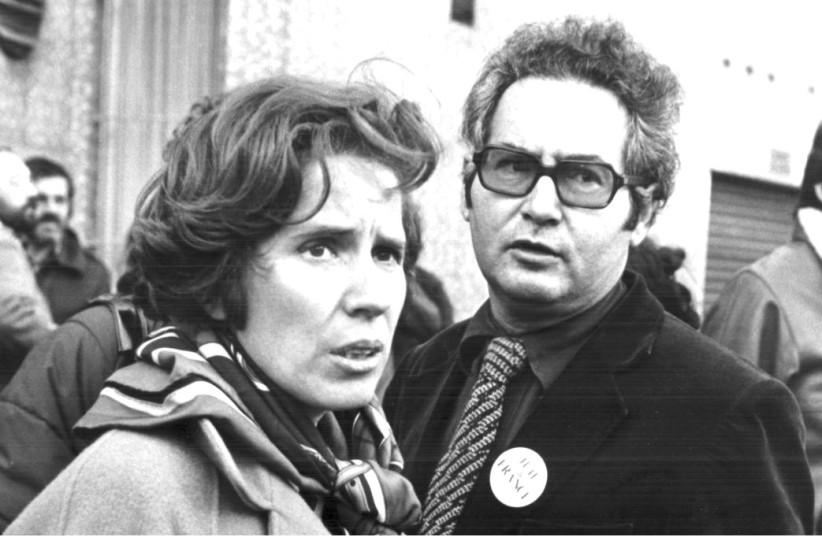Serge and Beate Klarsfeld came to Israel for the screening of Klarsfeld: A Love Story at the Jerusalem Jewish Film Festival on December 19. The film, by Mike Lerner and Martin Herring, explores the Klarsfelds’ heroic hunt for Nazi war criminals, their battle against a resurgent far-right movement in Europe, and the story of their own love affair. I met them at the Inbal Jerusalem Hotel before attending the Israeli premiere at the Cinematheque, along with Betty Eppel, who was hidden in France as a child with her brother during the Holocaust.
“Today we’re still very active in the fields of history, publishing books, commemorations and perpetuating Jewish memory in France,” says Serge, 87, a French historian whose father perished in Auschwitz. He met the German-born Beate, 83, on the Paris Metro in 1960, and they’ve been at each other’s side ever since.
Asked if they are worried about rising antisemitism and anti-Israel attitudes, Serge says: “No, I’m not very concerned because I came to Israel in 1953 to work on Kibbutz Geva in the Galilee, and when I see Israel today I’m not anxious. I told Beate – because the buffet breakfast here at the hotel is very rich – when I first came to Israel, we had only three eggs a week. There were 800,000 Jews in Israel, while today you have seven million.
“There is no official antisemitism in any country in the world today. Of course, you have many people who hate Jews, but... Jews in all countries have no limits or barriers. Of course, there are threats, like the bomb in Iran, but I cannot say there is rising antisemitism.
“There is no official antisemitism in any country in the world today. Of course, you have many people who hate Jews, but... Jews in all countries have no limits or barriers. Of course, there are threats, like the bomb in Iran, but I cannot say there is rising antisemitism.”
Serge Klarsfeld
“The far Right often tries to hide it – perhaps because they see Israel as a weapon against Muslim countries – and the extreme Left is dangerous because they oppose Israel, and their antisemitism is hidden behind anti-Zionism. I believe that you never had in the history of humanity a better situation than today. You have a Jewish state, and Jews everywhere in the world in good positions.”

How do the Klarsfelds see their legacy?
Asked how they see their legacy, Serge credits Beate with ousting former Nazis from the German parliament. (She was jailed in 1968 after famously slapping chancellor Kurt Kiesinger, who had been a member of the Nazi party.) Together they brought to justice a slew of Nazis and their collaborators in France and elsewhere, and established and provided documentation for the Memorial to the Deportation of Jews from France, including images and records of the 200,000 French citizens, 11,400 of them children, murdered in the Holocaust.
“We gave a history lesson to the French people, so we accomplished quite a lot,” Serge says. “We also brought many documents to Yad Vashem, which we presented to Menachem Begin and Yitzhak Arad in 1980. (Beate recalls Begin saying she was the only German he ever embraced.)
Beate, a candidate for The Left in the 2012 German presidential election, says their legacy is now in the hands of their children, Arno and Lida, and grandchildren. Asked what her message to the young people of Israel is, she says, “You have to defend [Israel]. The young people are very courageous... in the Israeli army. Our son served two years in the Border Police, so I know it’s very difficult.”
Strangely, the film does not include footage from Israel. In an interview on stage after the screening by Israeli film producer Yariv Mozer, Serge says, “We demonstrated a lot for Israel, and there is not a word (about Israel in the film). Perhaps (the filmmakers) are more leftist than we are!”
For her part, Betty concludes: “The film shows the love and respect the Klarsfelds have for each other and their dedication to catching Nazis like Klaus Barbie, the Butcher of Lyon, whose men nearly caught me and my brother in Dullin.”
